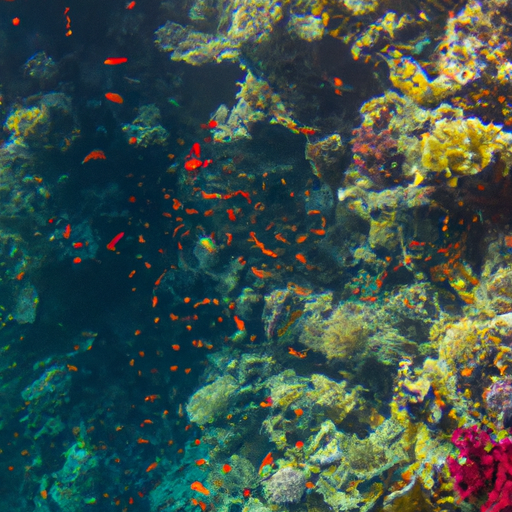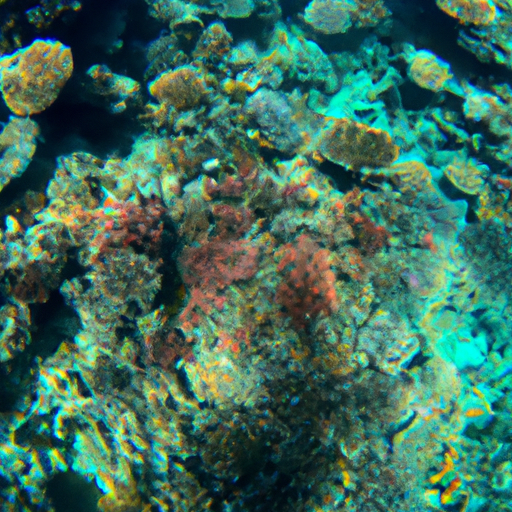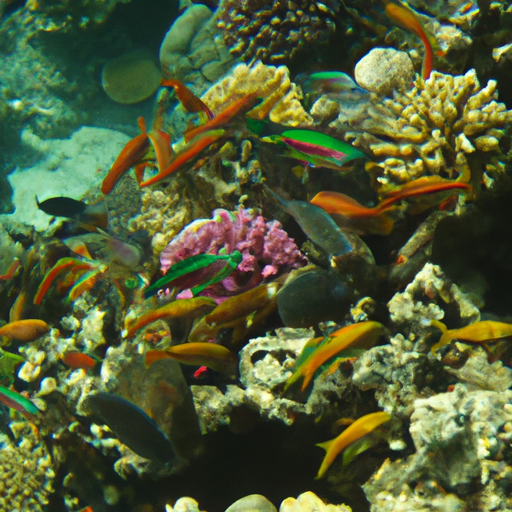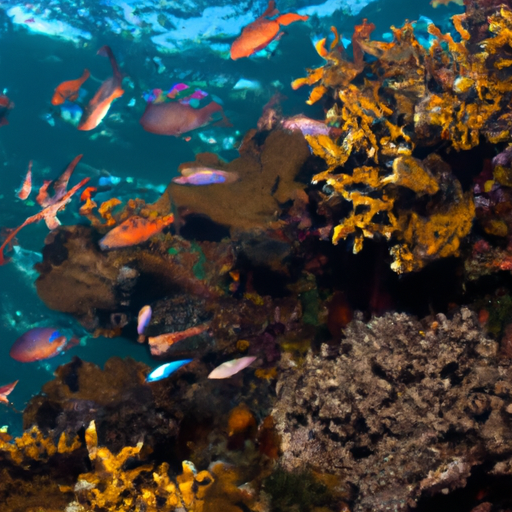
The Impact of Human Activities on Marine Life: Why We Must Act Now
The importance of preserving marine life and protecting our oceans for future generations cannot be overstated. Our oceans are not just vast bodies of water, but they are also home to a diverse range of marine species and ecosystems that are crucial for the overall health of our planet and our own survival.
Marine life plays a vital role in maintaining the balance of our planet’s ecosystems. Coral reefs, for example, support a quarter of all marine species and provide essential breeding grounds and habitats for fish. These reefs also act as a natural barrier, protecting our coastlines from storms and erosion. However, due to various human activities, coral reefs are facing significant threats like pollution, overfishing, and climate change.
Overfishing is another major concern that needs urgent attention. Many species of fish are being caught at unsustainable rates, leading to a decline in their populations. This not only disrupts the marine food chain but also has severe implications for coastal communities that rely on fishing for their livelihoods. By implementing responsible fishing practices, we can ensure the long-term sustainability of fish stocks and protect the livelihoods of those dependent on them.
The impacts of pollution on marine life are devastating. From plastic waste to chemical pollutants, our oceans are being heavily contaminated, harming marine species and ecosystems. Plastic waste, in particular, poses a significant threat as it can entangle marine life and is often mistaken for food by marine animals, leading to injury and death. To combat this issue, efforts should focus on reducing plastic consumption, improving waste management systems, and promoting recycling and reuse.
Climate change is yet another pressing issue that affects marine life. Rising sea temperatures and ocean acidification caused by increased carbon dioxide emissions have severe consequences for coral reefs, marine species, and marine ecosystems as a whole. Urgent global action is needed to reduce greenhouse gas emissions and mitigate the impacts of climate change on our oceans.
Preserving marine life and protecting our oceans requires a collective effort. Governments, organizations, and individuals need to come together to address the challenges facing our oceans. This can be done through the establishment of marine protected areas, the implementation of sustainable fishing practices, the reduction of pollution through stricter regulations, and the promotion of renewable energy sources.
By preserving marine life and protecting our oceans now, we can ensure that future generations have the opportunity to experience and benefit from the amazing diversity and ecological services that our oceans provide. It is our responsibility to act now and make a positive impact on the health and sustainability of our oceans, for the sake of both marine life and our own well-being.
Ensuring the Health of Our Oceans: The Need for Marine Conservation
Ensuring the health of our oceans is crucial for the well-being of our planet and the future generations to come. Marine conservation plays a vital role in protecting the diverse marine life that exists within these vast bodies of water. Preserving marine life is of utmost importance as it supports the entire ecosystem, provides essential resources, and offers numerous benefits to human societies.
One of the primary reasons for preserving marine life is the interconnectivity of the marine ecosystem. Every element of marine life, from the tiniest plankton to the largest apex predators like sharks and whales, plays a role in maintaining the balance of the ecosystem. For example, coral reefs, often referred to as the “rainforests of the sea,” provide a habitat for countless species and protect the coastline from erosion. Preserving these ecosystems ensures the survival of marine life and maintains the delicate balance necessary for a healthy and thriving ocean.
Furthermore, marine life provides valuable resources that are essential for human survival and well-being. Fish and other seafood are a significant source of protein for millions of people worldwide. However, overfishing and destructive fishing practices have put several fish species at risk of extinction and disrupted the food chain within the ocean. By implementing sustainable fishing practices and creating marine protected areas, we can prevent further depletion of fish stocks and ensure a constant supply of seafood for future generations.
In addition to the tangible benefits, marine life also offers intangible benefits such as cultural and economic value. Many coastal communities rely on tourism, which is often centered around marine activities such as snorkeling, scuba diving, and whale watching. Preserving marine life means protecting the beauty and diversity of these underwater ecosystems, which in turn attracts tourists and boosts local economies. Furthermore, marine life holds cultural significance for many indigenous communities whose traditions and way of life are intertwined with the ocean. Preserving marine life ensures the preservation of cultural heritage and traditions.
In conclusion, preserving marine life is crucial in protecting the health of our oceans for future generations. By recognizing the interconnectivity of the marine ecosystem, valuing the resources it provides, and appreciating its cultural and economic significance, we can make informed decisions and take necessary actions to ensure the longevity of our oceans. Marine conservation is not just a responsibility; it is an investment in the well-being of our planet and the legacy we leave behind for future generations.
Protecting Marine Biodiversity: Preserving the Web of Life in Our Oceans
Protecting marine biodiversity is crucial for the health and well-being of our oceans and the future of our planet. The rich and diverse web of life in our oceans plays a vital role in maintaining the balance of ecosystems and providing essential services to humanity.
Preserving marine life is not only important from an ecological standpoint but also for the benefit of future generations. The oceans are home to a staggering array of species, many of which are not yet fully understood. By protecting marine life, we ensure that future generations have the opportunity to explore and discover the wonders of the ocean.
Marine life provides numerous benefits to human society. From providing a source of food and livelihoods for coastal communities to supporting the tourism industry, our oceans are essential to our economic well-being. Preserving marine biodiversity is crucial in maintaining these valuable resources for future generations.
Furthermore, marine life plays a crucial role in regulating the Earth’s climate. Ocean ecosystems act as carbon sinks, absorbing and storing vast amounts of carbon dioxide. Protecting marine biodiversity helps mitigate the impacts of climate change by reducing greenhouse gas emissions and ensuring the resilience of marine ecosystems.
Preserving marine life also has significant implications for medical research and the development of life-saving drugs. Many marine organisms possess unique compounds and bioactive molecules that have the potential to treat a wide range of diseases. By safeguarding marine biodiversity, we ensure that these potentially life-saving resources are available for future generations.
In conclusion, the importance of preserving marine life cannot be overstated. By protecting marine biodiversity, we not only safeguard the delicate ecosystems of our oceans but also secure the well-being of future generations. It is our responsibility to act now to protect and preserve the web of life in our oceans for the benefit of all.
Sustainable Fisheries: Balancing Economic Interests and Marine Ecosystems
The Importance of Preserving Marine Life: Protecting Our Oceans for Future Generations
Sustainable fisheries are crucial for maintaining the delicate balance of our marine ecosystems. As we continue to face environmental challenges, it becomes increasingly important to prioritize the preservation of marine life and protect our oceans for future generations.
Marine life plays a significant role in the overall health of our planet. Oceans cover about 71% of the Earth’s surface and provide habitat for a wide variety of species, many of which are still undiscovered. Preserving marine life is not only a matter of conserving biodiversity but also essential for ensuring the long-term sustainability of our ecosystems.
When marine life populations are threatened or disrupted, it can have cascading effects throughout the food web. For example, the decline of certain fish species can lead to an increase in their prey species, upsetting the delicate balance of the ecosystem. This can have serious implications for both commercial and recreational fisheries, as well as other industries that depend on a healthy marine environment.
Furthermore, healthy oceans contribute significantly to the global economy. The marine industry, including fisheries and aquaculture, provides employment for millions of people and serves as a vital source of protein for communities around the world. Protecting our oceans and ensuring sustainable fishing practices is not only necessary for the well-being of marine life but also for the livelihoods of coastal communities and the global economy.
Unfortunately, unsustainable fishing practices, pollution, habitat destruction, and climate change pose significant threats to the health of our oceans. Overfishing, in particular, has become a widespread concern. The unsustainable harvesting of fish stocks can deplete populations, leading to irreversible damage to ecosystems and the collapse of fisheries.
Addressing these challenges requires a multi-faceted approach. It involves implementing and enforcing regulations that promote sustainable fishing practices, such as setting catch limits, implementing protected areas, and reducing bycatch. It also involves raising awareness and educating the public about the importance of preserving marine life and the role they can play in making sustainable choices as consumers.
Preserving and protecting our oceans for future generations requires a collective effort. Governments, businesses, organizations, and individuals all have a role to play in ensuring the long-term sustainability of our oceans. By working together and taking action now, we can make a difference and ensure that our oceans continue to thrive, providing a healthy and prosperous future for generations to come.



